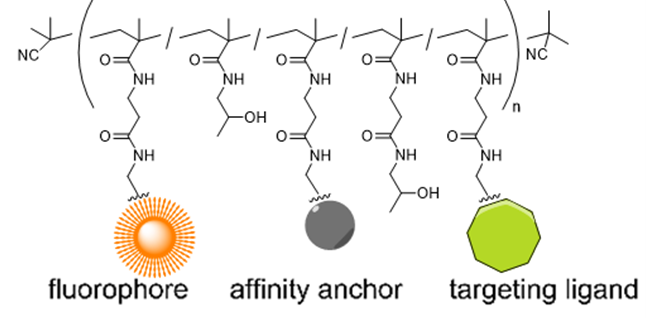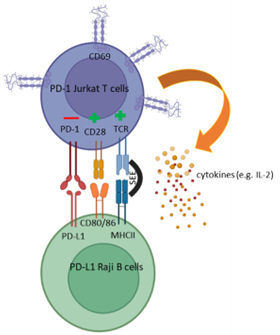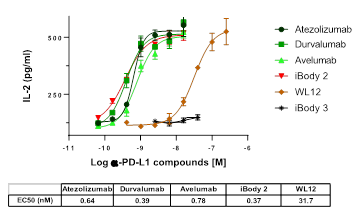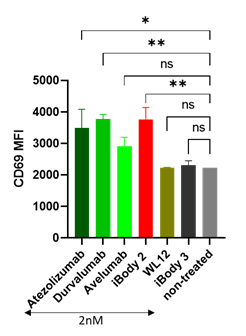Scientists:
Pavel Šácha, Tereza Ormsby
Challenge
Medical treatment based on antibodies can be in general very efficient, however, it is very expensive, it may induce adverse immune reactions and it is usually very narrowly targeted lacking thus versatility. There is always some group of non-responders as well as a group of patients with exaggerated reaction to the antibody treatment. Artificial synthetic antibodies – iBodies may overcome these drawbacks and even bring some new positive features into the therapy.
Technology
iBodies are polymer conjugates that can functionally replace antibodies.

Versatility of iBodies allows easy alterations (choice of fluorophores, affinity anchors, targeting ligands) and even identification of unknown targets of biologically active small molecules.
As an example, α-PD-L1 iBody is able to bind human PD-L1 with high potency, to block PD-1/PD-L1 interaction and to reactivate the suppressed T cells.



α-PD-L1 iBody works better or similarly to mAbs currently used in clinics.
Commercial opportunity
The whole antibody market – wherever it is possible to synthesise an efficient antibody surrogate.
Development status
Discovery stage, PoC assay in mice
Categories
Oncology; Immunology
Keywords
iBodies synthetic antibodies